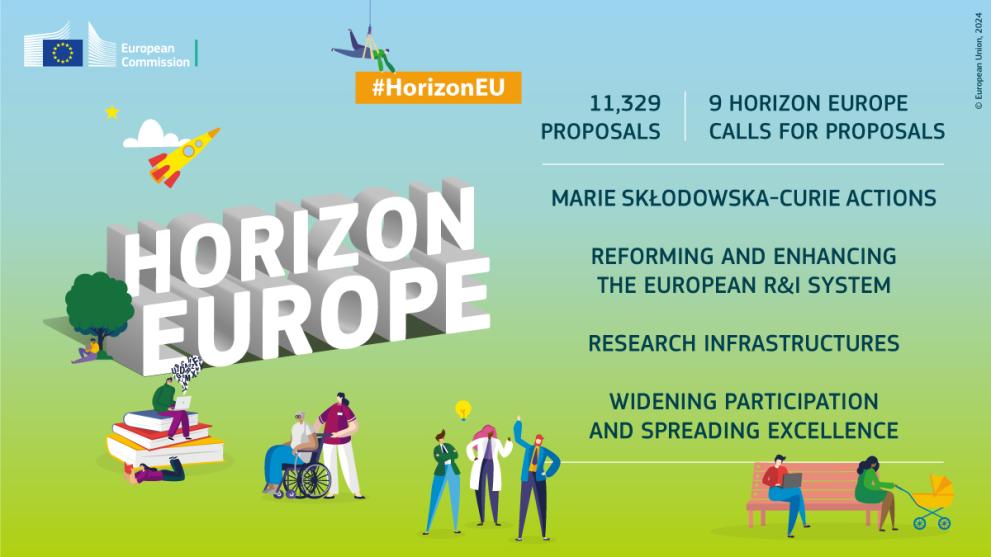The proposals cover a wide range of topics which go from developing research infrastructures, enhancing R&I, improving knowledge circulation with widening countries, and supporting young researchers’ careers.
We have received over 11,000 project proposals following the closure of nine Horizon Europe calls for EU funding.
The proposals were submitted to various Horizon Europe programmes and parts that we manage at the European Research Executive Agency (REA). Applicants’ ideas include bringing citizens and researchers together to increase trust in science; developing research infrastructures in Europe, including Ukraine’s; ensuring attractive early research careers; and supporting young researchers to pursue their career in research and innovation.
Evaluations of the proposals will now commence with the help of independent experts. Successful projects will be informed as from the end of December 2024 and start their EU-funded research journey soon after that.
Marie Skłodowska–Curie Actions (MSCA)
The MSCA funds doctoral and post-doctoral researchers. The vast majority of the proposals we received concern this programme. Most of the applicants applied to the Postdoctoral Fellowships call (10,360 proposals submitted), which aims to support the potential of postdoctoral researchers wishing to acquire new skills. Researchers applied to do so in Europe (9,303 proposals) or elsewhere in the world (1,057 proposals).
The MSCA4Ukraine call has also received a high number of proposals (more than 550). This call aims to support displaced researchers from Ukraine, so that they could continue their research work safely in academia, businesses, research centres and public institutions based in the EU and countries associated to Horizon Europe.
The COFUND call has received 81 proposals (40 doctoral, and 41 postdoctoral). COFUND co-finances new or existing doctoral programmes and postdoctoral fellowship schemes, aiming to spread the MSCA’s best practices. Selected projects can include several partners from the EU and worldwide, which will recruit, employ and train researchers.
Research Infrastructures
Research infrastructures are vital for scientists to conduct their work. They include laboratories, telescopes, and other tools for scientific research. The EU funds these through Horizon Europe. We received seven proposals for the two 2024 Research Infrastructures calls that just closed. Applicants have requested €14.9 million to assess the state of research infrastructures in Ukraine and develop a roadmap for their reconstruction, and contribute to build an operational, open and fair European Open Science Cloud (EOSC) federation community. The available budget for the two calls is €5 million.
Proposals are from Ukraine, Czech Republic, the Netherlands, Poland and Belgium.
Reforming and enhancing the research and innovation system
91 project proposals have been submitted to the three topics open for submission under Reforming R&I – which aims to strengthen the European Research Area. Applicants were asked to propose ideas that could help to: bring citizens and researchers together to raise awareness on the vital role of science in society and well-being; create ecosystems that ensure attractive early research careers perspectives; and improve structures, strategies, practices and skills for knowledge valorisation.
The available EU funding to fund projects under the three topics is €28 million.
A Reforming R&I call to support universities, other higher education institutions and research institutes to contribute to the EU Missions’ objectives has received 14 projects proposals. The available EU funding is €15 million.
Widening participation and spreading excellence
The two calls currently closed under this programme have received 226 proposals. The ERA Talents aims to boost interoperability of careers and employability of research and innovation talents across sectors, leading to an impactful collaboration between academia and business. The recent call has received 117 proposals.
109 proposals have been submitted to the Hop-On call, which allows entities from Widening countries to join ongoing research and innovation actions.

